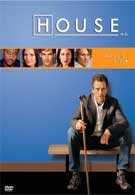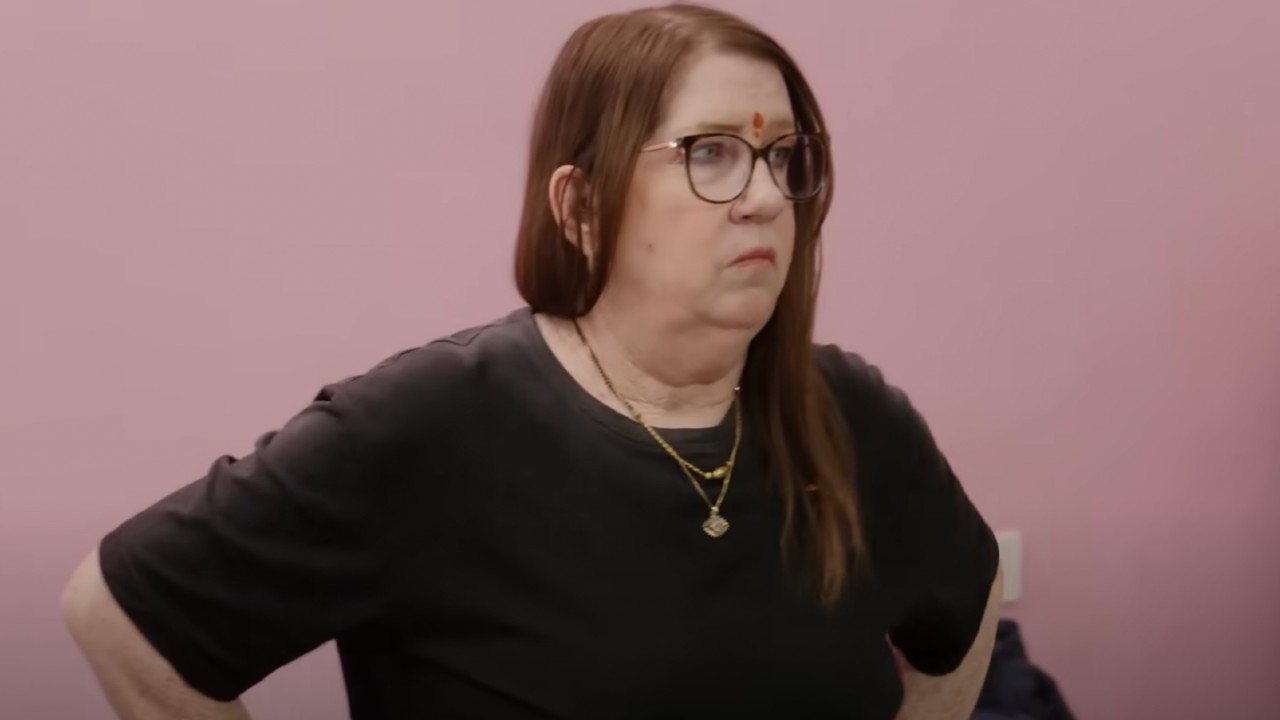Mysterious ailments? Check. Razor-sharp dialogue? Check. One of the most memorable television characters in years? Check. You'll find all that and more in "House: Season One," even if the set itself may leave you wanting more. Meet Dr. Gregory House, M.D. His turn-ons include soap operas, painkillers, and sarcasm. His turn-offs include red tape, dishonesty, and sick people. House, you see, has a unique take on that whole "bedside manner" thing: namely, he'll go out of his way to avoid being anywhere near the patient's bedside, and if he can't avoid them entirely, there's a good chance he will berate, belittle, or offend them before his consultation is done. House isn't politically correct. He tells mothers who complain about the price of childhood vaccinations that they should instead invest in "teeny tiny baby coffins." He is, to borrow a phrase from great American philosopher John J. Rambo, every hospital administrator's worst nightmare.
He is also, fortunately for us, damn funny.
Anyone familiar with the classic britcom "Black Adder" may want to keep a glass handy so they can do a proper spit take when they realize this is the same Hugh Laurie who spent that series so convincingly playing paste-brained fops opposite Rowan Atkinson (first as The Prince Regent George IV, then as Lieutenant George Colthust St. Banleigh). It's fitting that Laurie has found his role of a lifetime in Greg House, as it allows him to take up the mantle Atkinson wielded in "Black Adder", that of the dagger-tongued Jedi Master of the sarcastic retort. House is a filterless, free-roaming monster from the id and, as with "Black Adder", there's something devilishly addictive about a character who says all the things we wish we could heedless of the feelings of others or the consequences of his tactlessness. Nor is House's wit the full extent of the man. Dr. House is a complex, multi-layered character: he has no patience for sick people, but he risks both life, limb, and career to heal them. He acts according to his own moral code, rules and propriety be damned, but that moral code is rock solid and unwavering. He is at times petulant, unreasonable, and cruel. He is, in other words, far more like the people you meet everyday in real life than the neat little people that often populate the tube of boob.
House himself is the key attraction here, but certainly not the only one. Laurie is surrounded by a capable, if improbably attractive, team of assistants, each of whom House takes great delight in teasing, tormenting, and occasionally even teaching. House is forever butting heads with hospital administrator Dr. Cuddy, who hates that she can't get House to do simple things like, for instance, see patients, but who can't bring herself to fire him because he's right far more often than he's wrong. No ailment, no matter how obscure, can elude House for long. In fact, we can get even more specific than that. No ailment, no matter how obscure, can elude House past act three. And therein lies the show's greatest weakness.
You see, about 98% of "House"'s episodes unfold like this: 1) Sick person shows up with mysterious illness. 2) House and his team diagnose the mysterious illness and begin treatment. 3) The treatment appears to work, then suddenly goes horribly wrong and makes things much worse. 4) All appears lost until some random snippet of dialogue or chance encounter sparks an epiphany in House, who then 5) Correctly diagnoses the ailment and saves the day, usually at the last possible moment. From a plotting standpoint, congratulations, you've just seen almost every episode of "House." However, to dismiss this show for being somewhat formulaic misses the point.
In many ways, "House" has more in common with detective shows such as "Columbo" or "Monk" than it does with "ER" or "Grey's Anatomy." From Sherlock Holmes himself to later detectives such as Rex Stout's classic Nero Wolfe, there is a long history of the "master detective": the complex, often deeply flawed, master of investigation who takes a pile of seemingly irrelevant and unconnected clues and stitches them together into an airtight explanation of the crime at hand. Where Holmes or Wolfe deduce a suspect's motive from a speck of grease on the cuff of their sleeve, House deduces a patient's true ailment from the presence of termites in their apartment or uneaten ham in their refrigerator. As with those classic detectives and latter-day incarnations like Columbo and Monk, as much of the story's enjoyment comes from the character and eccentricities of the detective as he solves the case as does from the actual mystery itself. It's the same with House, the only difference being that with a standard detective story, if you're observant and logical, you've got a chance of being able to figure out whodunit before the detective. Most of us, however, don't possess advanced degrees in medicine, so we probably won't have the obscure knowledge needed to figure out the true nature of the Disease of the Week. But we don't mind, since a healthy padding of wit surrounds the medical babble.
Some of the problems of predictability are lessened later in the season as the show's writers begin to experiment with structure and throw a few curveballs into the story mix. House finds his Moriarty in Edward Vogler (Chi McBride), a wealthy philanthropist with the hospital in his pocket and a bug up his bum for House's maverick methods. Vogler presents a real obstacle in that he doesn't care how many lives House saves unless House makes money while doing the saving, and he has the power to can the doc if he isn't satisfied with the results. For Vogler, "pro bono" is just some sort of benefit concert for U2's lead singer. The addition of the lovely Sela Ward as House's ex, probably the only human being alive capable of putting House in his place, also helps shake the show up a bit, and her continued appearances in season two suggest that perhaps the writers understand that even as fascinating and funny as House is, there's only so many times you can tell the same story with the disease names changed. In a market where TV DVD releases are often filled to bursting with special features, "House"'s first-season set is something of a letdown. It's certainly not a bare-bones affair, but the smattering of special features the set offers ultimately amount to little more than a glorified press kit. Five featurettes focus on various aspects of the show, capped with a video of Hugh Laurie's casting session (where he demonstrates that near flawless American accent of his).
Your Daily Blend of Entertainment News
"The Concept" traces the show's origins, interviewing a variety of creative talents including show creator David Shore and director/exec producer Bryan "I like capes better than claws" Singer. "Dr. House" focuses, as one might imagine, on both the character and the actor who brings him to life. It also lets you in on such amusing tidbits like the fact that Singer was adamant that House should be played by an American, but Laurie's Yank accent was so perfect that he didn't realize the actor was from across the pond. "Medical Cases" investigates how the show's writers continually stock the Wheel-o-Disease with bizarre maladies for House to ponder. (Hint: it involves a series of highly illegal invasions of CDC secure facilities.) "HOUSE-isms" catalogues some of the show's pithiest bon mots. Finally, Drs. Cameron (Jennifer Morrison) and Cuddy (Lisa Edelstein) take us on a guided tour of the show's set, repeatedly destroying our suspension of disbelief by revealing that the stairs…don't…GO ANYWHERE!!! I will not stoop to cynicism by pointing out the marketing savvy displayed by having the set tour hosted by a pair of attractive women, as opposed to, say, scruffy old Hugh Laurie (although my wife purrs every time he speaks in his native accent, so maybe he could have hosted after all).
Should you wish to expand your horizons by learning how sarcasm translates into Spanish, the DVDs helpfully provide you with subtitles to do so.
The disks themselves are double-sided, a design I'm not crazy about but which at least saves space by keeping an entire season on three disks rather than six or seven. A slipcase fits around the box itself, which unfolds when removed, with one page per disk. None of the annoying double-stacking we've seen on some DVD sets.
The main draw with this set is the show itself, but it would have been nice to throw a commentary or two in as well. Still, it's a passable set, even if it doesn't live up to the high standard set by some of the nicer TV on DVD sets out there.

